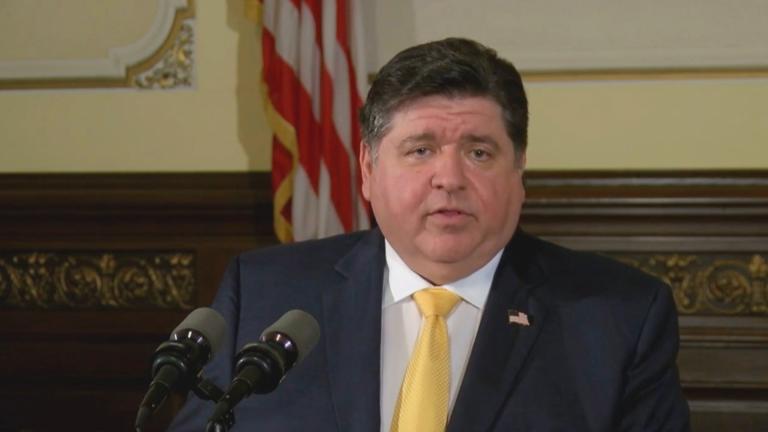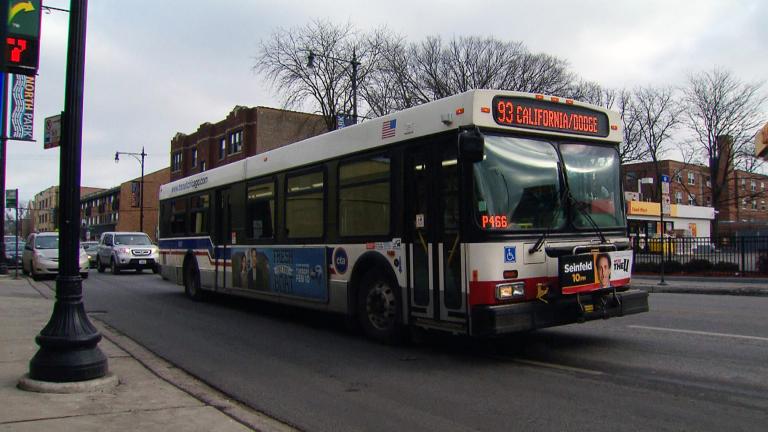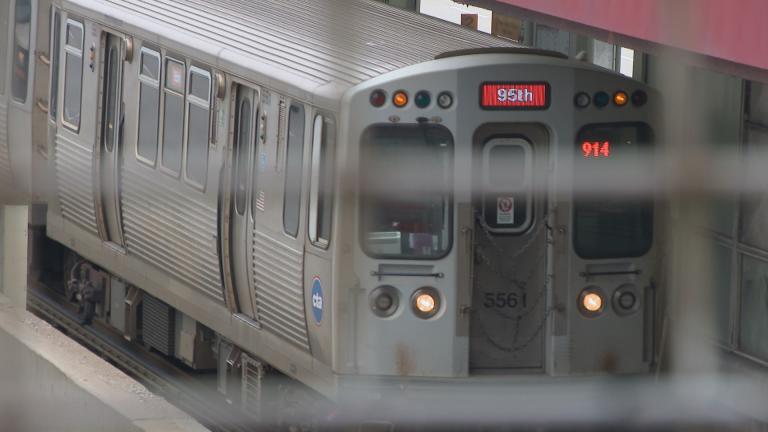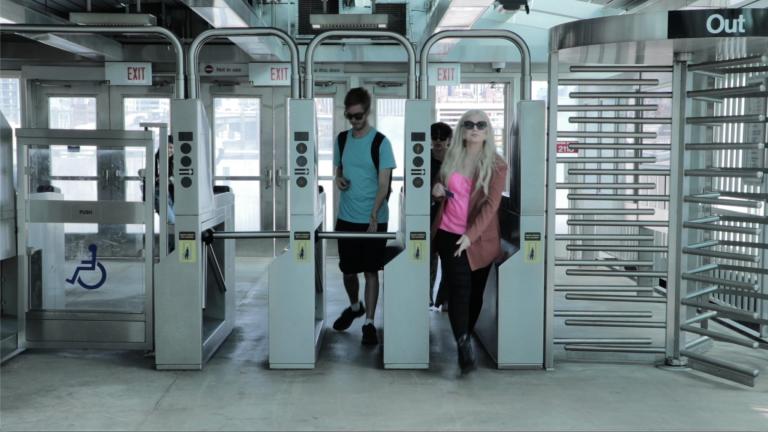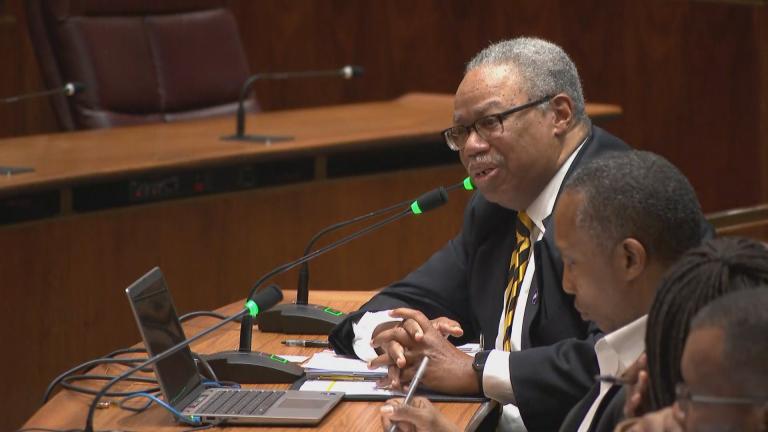Update, March 14, 2024: This story was originally published on Feb. 20, 2023. In March 2024, CTA officials issued a blanket correction to the data they originally provided, which the agency mischaracterized as comprising a straight-time accounting of operator hours. In fact, the agency has subsequently told WTTW News that the hours provided contained the so-called “OT multiplier” used to calculate the time and a half employees earn when they work overtime. The CTA’s error means the overtime hours reported in this article are not necessarily directly reflective of the exact number of hours an employee worked.
Continuing a yearslong trend, the Chicago Transit Authority leaned heavily on overtime work by bus and train operators in 2022 as the agency struggled to hire enough workers to keep up with employee departures.
The staffing shortfall is one of a plethora of issues plaguing the CTA in recent months. Frustrated riders and alderpeople have slammed agency leadership for late or missing buses and trains, inadequate cleaning, safety issues and not providing social services to unhoused people.
Records obtained by WTTW News show that 14.5% of the agency’s operator workforce was paid for average weeks of 50 hours or more in 2022. That’s an increase from 13.6% of operators in 2021.
Twenty-seven operators were paid for average weeks of 80 hours or more. Of those, three bus operators were paid out for average weeks of more than 100 hours.
The records cover how many hours each year operators were paid for, which the CTA said includes paid time off and authorized breaks.
The continued reliance on overtime follows a pattern first reported by WTTW News in December of last year. An analysis of CTA records from 2015 to 2021 found a growing number of employees paid for long average workweeks, which experts said raises questions about worker and passenger safety.
Records also show the total number of operators employed by the CTA continued to fall, driven by a loss in bus drivers. In 2022, the agency employed 4,399 bus and train operators, down from 4,580 in 2021.
At February’s board meeting, CTA President Dorval Carter said the transit agency is heavily focused on recruiting. He touted a late January job fair that drew more than 600 applicants for jobs as a bus operator or mechanic.
“This was our most widely attended job fair in recent years,” Carter said. “While we still have a great deal of work to do to grow our staffing levels, I think it’s appropriate to applaud the significance of this achievement.”
For months, the CTA has said staff shortages play a major role in widespread service problems transit commuters are facing, including long delays and so-called “ghost” buses and trains that appear on a tracker but never materialize in real life.
Carter told the board that the agency’s efforts to bring on new employees is paying off.
“We’re seeing the results from our ongoing recruitment campaign,” he said earlier this month. “In the month of January, CTA received more than 1,000 job applications for the position of bus operator alone. While these numbers and our ongoing hiring successes are encouraging … we still have a ways to go.”
That’s because the CTA’s been dealing with retirements, resignations and ongoing illness-related shortfalls due to COVID-19.
According to its “Meeting the Moment” scorecard, the CTA hired 452 bus operators last year, two more than its self-imposed goal. The agency plans to hire 700 bus operators in 2023, with 88 new drivers already on board this year.
A CTA spokesperson said the agency currently has 600 open bus operator jobs, with about 120 new drivers going through the training process.
“Strengthening the CTA workforce is among our top priorities in 2023,” the agency told WTTW News in a statement. “The workforce shortage we are facing is a national issue, as such we anticipated seeing a slight increase in operators earning over-time pay in 2022. We are now competing with numerous other industries for qualified candidates to fill positions that require Commercial Driver’s Licenses, as such, we’ve taken numerous and extraordinary steps to remain competitive in the marketplace.”
Among those measures are hiring bus operators as full-time employees rather than starting them off as part-timers; hiring and retention bonuses; a free course to help operators earn a commercial learner’s permit; and a just-announced plan to recruit U.S. Army veterans. The CTA said it plans to announce more job fairs soon.
Despite its increasing reliance on overtime to make up for staffing shortfalls, the CTA said its policies have helped ensure a safe environment for employees and passengers. Last year, the agency reported 161 bus collisions to the National Transit Database, down from a recent peak of 273 in 2016.
The CTA’s work rules mandate that operators must have a minimum of eight hours between shifts and cannot work longer than five and a half hours without taking a 30- to 60-minute break. Per their union contract, operators cannot work longer than 13 hours per shift unless management asks them to in emergency situations and the operator doesn’t show signs of fatigue.
Doctors previously told WTTW News that only having eight hours between shifts likely makes it difficult for many employees to get adequate sleep. The CTA previously told WTTW News that it unsuccessfully tried to increase the mandatory time off to ten hours during union negotiations.
Problems with the CTA have been one of the major issues in Chicago’s contentious mayoral race. Several of Mayor Lori Lightfoot’s challengers have criticized her for allowing CTA service levels to slip drastically during her tenure and questioned why Carter has retained his mayor-appointed post.
“We are not out of the woods by any stretch of the imagination,” Carter said, “and we continue to deal with the daily challenges that any transit system faces as we continue to dig our way out of the impact of this pandemic. But I am pleased with the progress that we’re making.”
Contact Nick Blumberg: [email protected] | (773) 509-5434 | @ndblumberg

